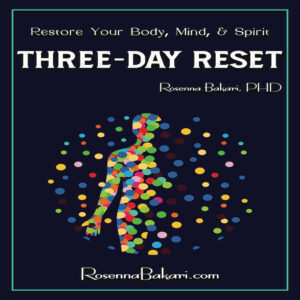Defining Love

Defining love is as complex as getting a single drop of water from the faucet. The water molecules are too cohesive to deliver a single drop from a pressure system. So it is with love.
Love includes molecules of attachment, self-expression, familiarity, kinship, survival, and obligation. Their cohesion makes defining love impossible, especially when pressure is applied.
Feeling lonely is pressure. So is society’s expectation, wanting a child, and needing financial support. These situations make many people desperate for love.
People define love according to their needs rather than the needs of love. This writing aims to sort through the ideology of intimate love — the search or practice of partnering through life with someone. Specifically, I want to dissect why so many committed couples fail to grow into authentic love.
Failing Love
Most people define love as a deep feeling of desire. What we don’t admit, however, is that the desire is often lust, validation, security, attention, care, or protection.
We target a person to fulfill our needs and call that love. Most people don’t know how to show up to love a person for who they are. They never see the person outside of need fulfillment.
Loving a person is often experienced as “avoiding the absence of attention, validation, or physical intimacy.” The shallow definition means each moment where these conditions are unmet makes you question the relationship.
Failing love is attached to how a person fills in the gaps of their unhealed wounds. Love falls short when it focuses on the unmet needs of your past.
What most people identify as love is only attachment, love’s understudy. So, let’s talk about attachment.
Falling into Attachment
People don’t fall in or out of love. They fail to arrive at love (with themselves) because unhealed wounds keep them stuck in attachment.
Unhealthy attachment arises from fears: Not being enough, abandonment, being alone, and being hurt.
Unresolved issues from adverse experiences in childhood can preoccupy the adult brain with safety. Attachment can offer feelings of safety and mimic love temporarily.
You feel safe when you believe someone will be by your side forever. But feeling safe is not love. When a partner is assigned the role of safety, they have little independence to grow into their best self.
Love Mimics
The brain lights up when your unresolved issues are triggered. Happy or sad feelings can be activated, although people don’t recognize happy feelings as trauma triggers. They are. That’s why falling in love can go so wrong.
Someone makes you feel important, and your feeling of not being enough turns into excitement (temporarily.) “I need you” is understood as “I will never leave you, and your heart thumps.”
If you were abused as a child, being noticed feels dangerous. But when you spend time with someone who makes your life easier, the relationship can become a hiding place. You shrink into the background of life as a parent and spouse, where you feel safe.
Loving according to your wounds is an emotional trap. Relationships based on unhealed hearts are difficult to maintain because they are based on performance.
Addicted to Love
You may be reading this and wondering what’s wrong with wanting people to give you what you need. Love makes your life better, right? If people don’t enhance your life, they shouldn’t be in it, right?
Relationships eventually bring out the worst in people when they are need-based instead of love-based. Think about it this way. Attachment helps you hide, while loving enables you to heal. Loving calls forth our best selves.
When you enter relationships, consciously or unconsciously, looking for a partner to fill in your unhealed gaps, the relationship is constantly under stress.
You remain defensive about how the person is filling in your gaps. You are not in love with a person. You are in love with the pain relief.
Falling in love feels like an addiction because our brains are prone to experience it that way.
Addicts don’t fall in love with their dealers but attach to them. Their love is for the drug.
Unhealed hearts share the same pattern. They never love one another. They are only attached to the high.
Breakup Triggers
In healthy relationships, each person is responsible for bringing joy rather than trying to create it with a partner. When two people bring joy into the relationship, the joy is magnified for both.
But, when one person brings a void to be filled by the other, there will eventually be too little joy to go around.
To establish permanent and fulfilling relationships, you must love the person, not their role in your life. People eventually fail at the role you assign them once they focus on their needs instead of your wounds.
If you never learned to love the person outside of their assigned role, there is no staying power in the relationship. Attachment bonds break down with each trigger of your unresolved pain.
Imperfect Love
As an example, fear of abandonment may attract relationships where you feel protected. You show up with a victim mentality (unconsciously), and the partner exhibits rescue behavior. The two of you play your relationship roles as victim and protector.
Early relationship stages reveal the two of you are a perfect match. The protector is sweet and kind, and the victim is determined. Love is in the air.
The relationship revolves around previous victimizations that had nothing to do with the current relationship. Over time, the victim eagerly reprimands the protector for causing pain whenever there is discomfort. The protector begins to feel inadequate and unappreciated.
The protector is not a healthy role and is usually taken on by someone with co-dependency issues. They thrive on enmeshed relationships. They need someone to be dependent on them. If the co-dependency attachment bond is broken, conflict arises.
The victim cannot stop feeling like a victim just because they are attached. Attachment doesn’t change the victim mentality. It often deepens it. Fears of abandonment exasperate in relationships.
Validation of Love
Validation is a molecule of love. Relationships should feel validating. But validating your love for a person is different from validating a person for love.
Where open emotional wounds exist, lovers seek personal validation as a relationship requirement. Personal validation from a partner is required in the absence of self-regulation.
If people cannot convince themselves that they are loveable, they will need constant reminding from someone else. Such a demand strains the relationship.
Disorganized Attachment
The need for personal validation is part of the disorganized attachment style. The style develops in childhood when caregivers do not create adequate love bonds with the child.
Disorganized attachment adults have unreasonable boundaries in relationships around sharing time, resources, or possessions. They don’t seek to validate love, but rather themselves.
Personal validation requires arousal of some kind.
Some couples use materialism such as gifts, houses and furnishings, jewelry, and vacation packages for arousal. Sex is often the focus of arousal, as is unreasonable time spent together.
Whatever the source of validation, there is a high need for it. The absence of it creates conflict because conflict is a significant source of validation. Let me explain with a reminder that validation requires arousal.
When conflict arises, the brain perceives it as a threat, which is arousal. The person feels validated when the partner remains in the relationship after the threat. The partner is still providing arousal validation.
In the absence of all other validation, conflict serves the purpose. Consider the example in the following section.
Arousal
In new relationships, many couples have frequent sex. It builds attachment quickly. As the relationship settles, most couples adjust to a lower frequency of physical intimacy. They move on to other ways to build life intimacy together, not just physical. However, if sex is the validation, something else happens.
Let’s say the couple had sex five times a week, and now they only have sex three times a week. That’s two days of arousal no longer available for validation.
An easy replacement for arousal is conflict, so the couple may find themselves in arguments twice a week. The arousal of conflict replaces the missing arousal of sex.
Validation needs are about feeling wanted. One partner gives the other partner the responsibility to make them feel wanted, needed, or loved.
They do not know how to elicit those feelings from within. They likely need to learn how to navigate the world to feel validated outside their relationship.
Validation relationships can exist for a long time because conflict is an easy substitute for arousal. But high-conflict relationships take a toll on individuals.
Perpetual conflict can result in poor mental and physical health. When the conflict peaks, divorce is imminent.
LOVE OFFERINGS
Loving allows enough physical and emotional separation for independence yet enough physical and emotional intimacy for relationship security. The following patterns typically validate authentic love potential.
- Offerings: Potential lovers show appreciation for one another’s time with gestures or offerings. Opening doors, paying for the date, and bringing flowers or small gifts are evidence of kindness. The absence of kind gestures suggests a person may be looking to be rescued instead of partnered.
- Access: Potential lovers have reasonable access to one another. They share themselves with one another synchronously. They may grow apart briefly to focus on themselves. But they always grow together again. They don’t keep growing apart.
- Freedom: The expression of freedom is a critical expression of love potential. Authentic lovers don’t show up as people pleasers. They have gentle and respectable ways to say no without shutting down. Lovers take no for an answer, significantly distinguishing them from people who only attach.
Most early relationships show evidence of potential love. However, a person with unhealed wounds will break these patterns sooner than later. Authentic lovers maintain the patterns throughout their relationship.
Is it Really Love?
Love doesn’t come as easy as attachment. Love does not fail because it doesn’t demand. It reflects. Love reflects what you see in yourself, the good, bad, and ugly.
Learning to love starts with healing the parts of you that you try to hide to make yourself lovable. If you want to love harder, then heal wiser. If you are looking for love, start within.
You bring love to a relationship to share, not create it.




